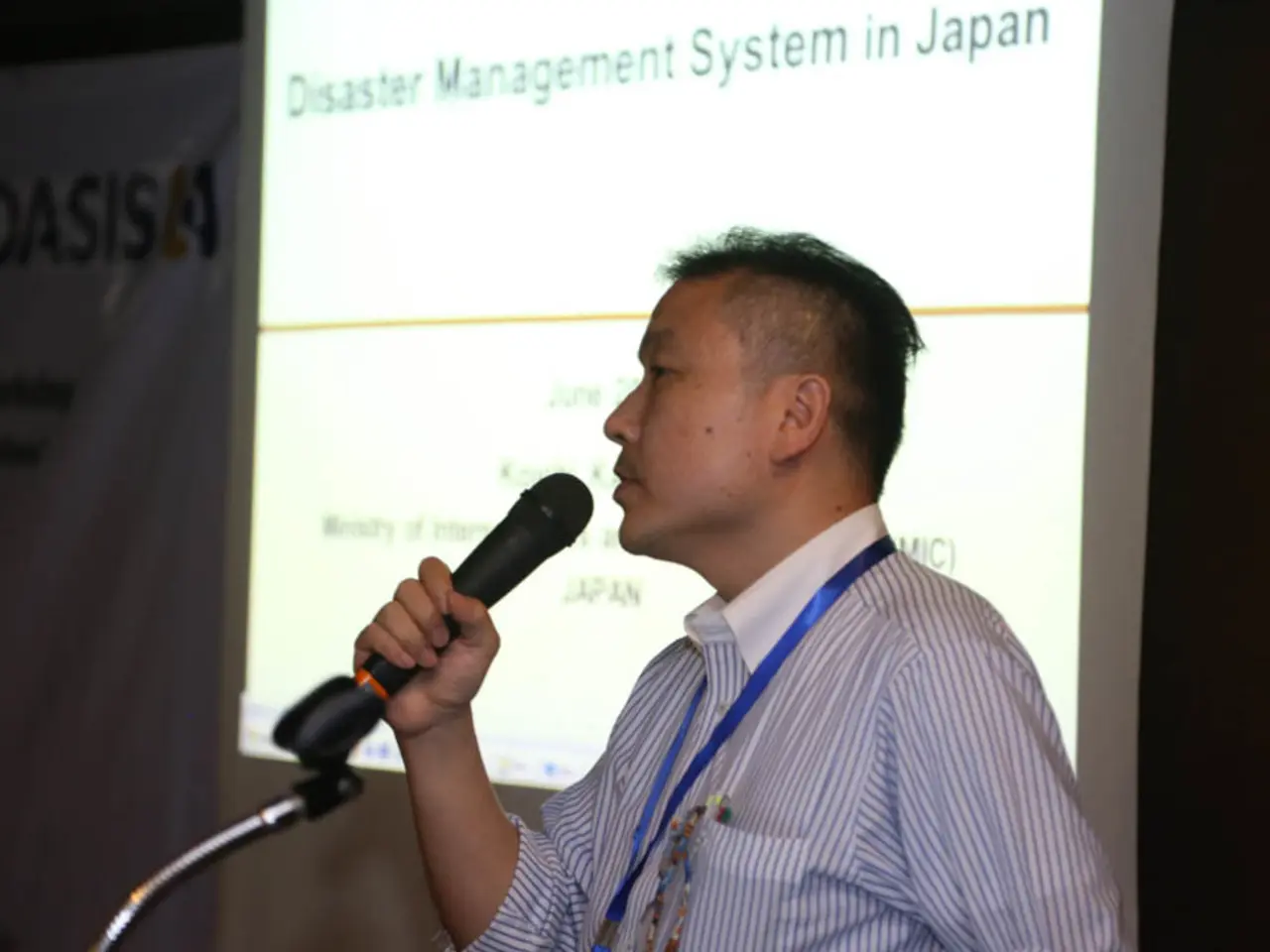Japanese Prime Minister Ishiba relinquishes his position
Japanese Prime Minister Shigeru Ishiba Resigns Amidst Political Turmoil
Japanese Prime Minister Shigeru Ishiba has announced his resignation, less than a year into his tenure, following the coalition's loss of the majority in the House of Councillors election in July.
Voter dissatisfaction with rising prices and immigration policy led to the Liberal Democratic Party's (LDP) election defeat, with the fragmented opposition unlikely to agree on a joint candidate at the moment. The outgoing Ishiba is considered more liberal, while some LDP members want to move further to the right and return to the way it was before.
A major conflict is brewing within the LDP over the party's reform direction. The LDP is perceived as having shifted too far to the left, with the Sanseito party, a right-wing populist small party, benefiting from the LDP's loss. The Sanseito party is openly anti-foreigner.
Professor Axel Klein, from the University of Duisburg-Essen, suggests that the LDP could bring one of the opposition parties on board or expand the government coalition to three parties or continue as a minority government.
Ishiba has stated that he will fulfill his duties until a new LDP president is elected. The coalition of LDP and its junior partner Komeito lost their majority in the House of Councillors in July. Some, however, prefer a centrist path to better cooperate with other parties.
Since then, Ishiba's coalition has been a minority government. Ishiba served as party and government leader since October last year, and his resignation was announced on Sunday evening (local time) in a press conference.
The LDP's loss of conservative voter segments is acknowledged in its analysis of recent election losses. The LDP's election defeat and Ishiba's resignation have plunged Japan into a period of political uncertainty.
Read also:
- Lu Shiow-yen's Challenging Position as Chair of the Chinese Nationalist Party (KMT) Under Scrutiny in Donovan's Analysis
- Government will initiate the second phase of combined inoculation in 11 states deemed high-risk, scheduled from September 11 to 14.
- Contest Between Palmer and Frohnmaier: Expert Predicts No Clear Winner and a Flawed Structure
- Berlin's Roma-Sinti communities asserting their presence in German theatrical arenas








